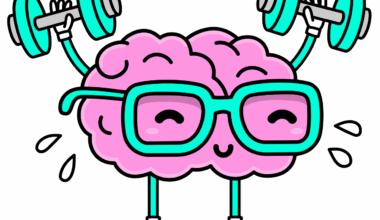Nutrition Strategies to Support Muscle Maintenance with Age
As individuals age, maintaining muscle mass becomes increasingly essential for overall health. A well-planned diet can play a significant role in achieving this goal. Older adults often experience preservation issues of muscle tissue due to hormonal changes and inactivity, necessitating the need for specific nutritional strategies. Consuming adequate protein is fundamental; recommendations suggest around 1.2 to 1.6 grams per kilogram of body weight daily for older adults to support muscle synthesis. This can be achieved through various sources, including lean meats, dairy, legumes, and plant-based proteins. In addition, incorporating vitamins and minerals, especially vitamin D and calcium, is vital for maintaining bone health, which supports muscle function. Studies suggest that increasing the frequency of protein intake throughout the day also benefits muscle retention. Thus, consuming small amounts of protein every few hours may be more effective than larger, infrequent meals. Overall, focusing on a well-balanced diet that meets one’s nutritional needs can significantly contribute to muscle maintenance as we age.
Hydration is another critical factor that often gets overlooked when discussing nutrition and aging. As we age, our thirst sensation decreases, which can lead to insufficient fluid intake. This, in turn, can lead to muscle fatigue and decreased performance in physical activities. Aiming for adequate hydration aids in the prevention of muscle cramping and maintains overall bodily functions. The general recommendation is to drink at least 8 cups of water per day, with adjustments based on individual activity levels and climate conditions. Including water-rich foods in the diet can also help improve hydration; foods such as cucumbers, oranges, and soups can contribute significantly to fluid intake. Furthermore, electrolytes play a role in muscle function and can be replenished through sports drinks or natural sources like coconut water after workouts. Monitoring hydration status is crucial, particularly in older adults who are more susceptible to dehydration. Keeping a water bottle handy or setting reminders to drink water can aid in maintaining hydration. By focusing on hydration strategies, older adults can significantly support their muscle health and enhance their well-being.
Importance of Omega-3 Fatty Acids
Omega-3 fatty acids have recently gained attention for their potential in supporting muscle maintenance as we age. These essential fats, found in fatty fish, flaxseeds, and walnuts, have anti-inflammatory properties that can benefit muscle recovery and overall health. Research indicates that incorporating omega-3s into the diet may enhance muscle protein synthesis, leading to better muscle retention and slower muscle loss over time. Consuming two to three servings of fatty fish like salmon or mackerel weekly can significantly improve omega-3 levels. Supplements are another option, especially for those who may not like fish. For older adults, omega-3s can also support cognitive function and heart health, contributing to better overall quality of life. They may also play a role in limiting age-related muscle loss by modulating inflammation and promoting muscle repair. Therefore, including omega-3 fatty acids in daily nutrition can be a simple yet effective strategy for maintaining muscle mass and enhancing health as we age. A balanced approach, integrating omega-3 foods or supplements, can yield significant health benefits.
In addition to protein and omega-3s, the inclusion of antioxidants in the diet can also support muscle maintenance during aging. Antioxidants help combat oxidative stress, which can accelerate muscle aging and deterioration. Foods rich in antioxidants, such as berries, dark chocolate, and leafy green vegetables, play a crucial role. Berries, in particular, are known for their high levels of vitamin C and other beneficial compounds that protect against cellular damage. Regular consumption of these foods can enhance muscle recovery from workouts and reduce inflammation, making them valuable for older adults engaged in physical activity. Incorporating colorful fruits and vegetables into meals not only adds nutrients but also makes meals more enjoyable and visually appealing. Smoothies packed with spinach, berries, and nut butter can serve as an excellent post-workout nutritional option. Consider meal planning to include a variety of antioxidants throughout the week, ensuring diverse nutrient intake. This approach can help optimize muscle function and prolong independence, highlighting the importance of nutrition in an active lifestyle as we age.
Smart Supplementation
Considering potential gaps in the diet as individuals age, smart supplementation may serve as a beneficial strategy for maintaining muscle health. Certain vitamins and minerals, including vitamin D, calcium, and magnesium, are integral to muscle function. Vitamin D is essential for calcium absorption and can be challenging to obtain through food alone, especially in limited sun exposure situations. Therefore, a vitamin D supplement may be necessary for some older adults to maintain proper bone and muscle health. Calcium is equally important; dairy products, fortified non-dairy milk, and leafy greens act as great sources. Additionally, magnesium supports muscle contraction and relaxation. If dietary intake is insufficient, magnesium supplements could help fulfill requirements. However, consultation with a healthcare provider is crucial before beginning any supplementation regimen. They can provide guidance based on personal health needs and dietary restrictions. Furthermore, exploring functional foods, such as fortified foods containing these nutrients, can also be advantageous. Through smart supplementation, individuals can address potential deficiencies and enhance their nutritional strategies, supporting overall muscle health as they age.
Regular physical activity combined with nutrition can amplify the effects of dietary strategies on muscle maintenance. Resistance training, in particular, is vital; it stimulates muscle hypertrophy while enhancing the effectiveness of dietary protein intake. When coupled with proper nutrition, resistance training can lead to measurable improvements in muscle strength and size. Moreover, consistency in exercise routines becomes increasingly essential as one ages, as it not only aids in muscle maintenance but also supports overall mobility and independence. Engaging in a variety of activities, including light weights, bodyweight exercises, and functional training, helps preserve muscle mass. The inclusion of protein-rich snacks post-workout encourages muscle recovery and replenishes energy, optimizing the benefits of resistance training. Therefore, finding enjoyable activities that can be sustained throughout life is key. Group classes, home workouts, or outdoor activities not only motivate individuals but can foster a sense of community. Thus, creating a holistic approach that combines nutrition and exercise maximizes muscle health and overall well-being. Ultimately, fostering a proactive mindset towards physical activity and nutrition can yield long-term benefits for aging adults.
Conclusion
In conclusion, as we age, nutrition plays a pivotal role in supporting muscle maintenance and overall health. Emphasizing adequate protein intake, hydration, omega-3 fatty acids, antioxidants, and essential vitamins and minerals is critical for achieving desirable outcomes. Older adults should consider a comprehensive approach that encompasses dietary strategies, supplementation, and regular physical activity. By consulting with healthcare providers and nutritionists, individuals can tailor their nutritional plans to meet their specific needs effectively. Implementing these strategies not only aids in muscle retention but also boosts energy levels and enhances quality of life. Staying active and maintaining proper nutrition can lead to greater independence and mobility, ensuring a vibrant aging process. Through lifelong learning and adaptation of dietary habits and exercise routines, older adults can positively influence their health outcomes. The journey doesn’t end with age; instead, it transforms into a new chapter, filled with opportunities to embrace healthier lifestyles. By prioritizing nutrition, consistent activity, and informed choices, one can achieve an empowered and fulfilling later life.
Ultimately, as we embrace the wisdom that comes with aging, the importance of our nutritional choices cannot be overstated. Fueling our bodies with the right nutrients, staying hydrated, and engaging in regular physical activity nurtures not just our muscles but our holistic health. The journey of aging can be met with vitality and vigor through dedication to a balanced lifestyle. Every choice contributes to the quality of life, and as older adults, adopting these nutrition strategies can lead to improved physical function, better mental health, and a more enjoyable life. Additionally, fostering social interactions through shared meals and exercise can provide significant emotional benefits, enhancing feelings of connection and community. Therefore, it’s not merely about muscle maintenance but nurturing every aspect of well-being that comes with it. The days of our lives ahead hold immense potential to thrive and remain active. With adequate awareness of nutritional needs and an engaging lifestyle, older adults can navigate aging gracefully and empower themselves to enjoy vital, healthy years ahead.


